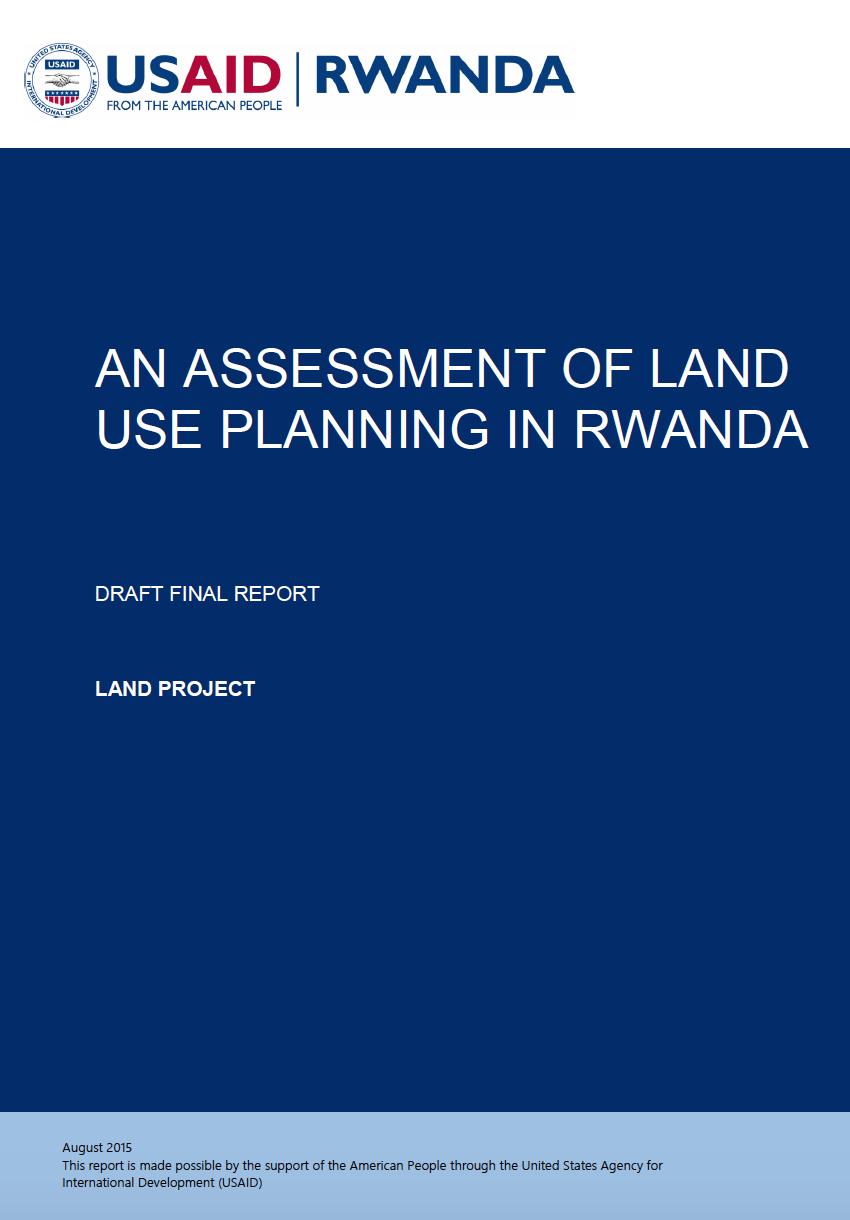Resource information
Land is a critical resource. It is finite and irreplaceable. The role and efficiency of land use planning is therefore of considerable national importance. The issues faced by Rwanda in relation to land and land use planning are well recorded. They include: a) a very high population density of, b) land scarcity (total land area of 24,688 km2) and a large percentage of land that is considered undevelopable (such as wetlands or steep slopes),1 c) increasing competition for land resources with a reduction in cultivable land due to soil erosion and inadequate soil and water management, d) comparatively low rates of urbanization (18%) but with projected increases that are significant, e) historically poor mechanisms to enforce the control of land use, f) a deficit in infrastructure and basic services, g) ineffective urban management systems, and h) an inadequate supply of affordable housing that is compounding.2 Equally there are well-documented causes of optimism with the adoption of proactive planning. In some important respects and in comparison with other countries, Rwanda might be considered to be making good progress in relation to the development of a land use planning system.3
This assessment focuses on three primary dimensions in land use planning practice: the institutional and organization framework for land use planning, b) the plan development process and implementation issues arising from the plan, and c) the capacity of organizations and individuals to operate the land use planning system.

